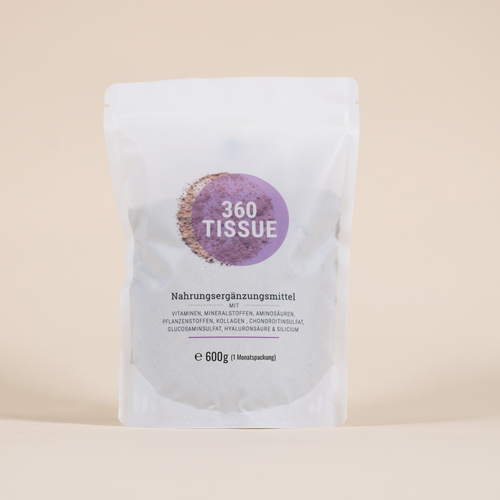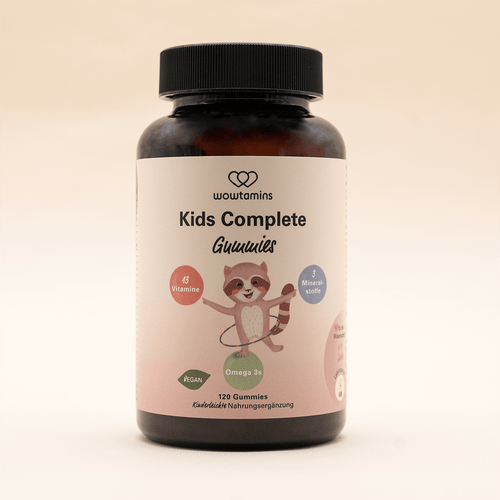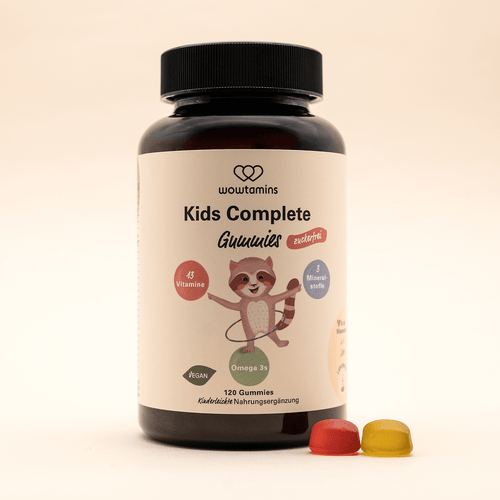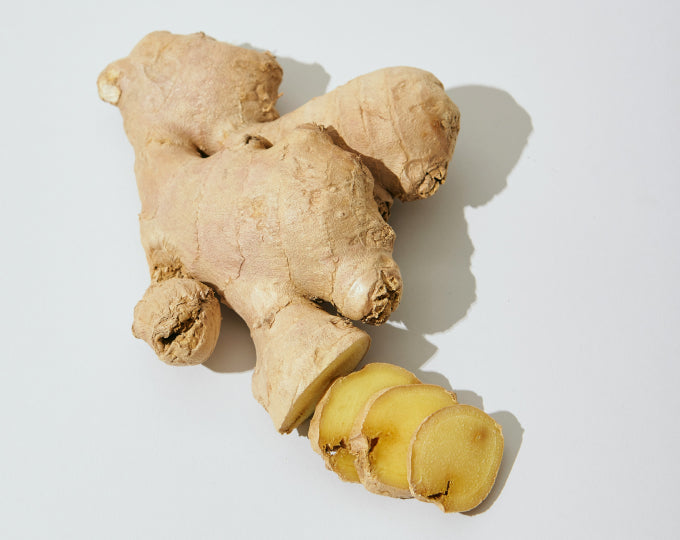Themen dieses Blogartikels:
What is vitamin k2?
Vitamin K2 is a fat-soluble vitamin of the vitamin K group. It is also called menaquinone. Phylloquinone, or vitamin K1, is structurally similar, but is mainly found in plants.¹ It turns out that we can convert a certain amount of phylloquinone from food into menaquinone.² However, menaquinone also occurs naturally in our body and is synthesized by bacteria in the intestinal flora, among other things.³
What are the functions of vitamin k2?
Vitamin K2 is involved in blood clotting. Here it primarily has a regulatory function, as it is necessary for the activation of coagulation factors as well as anticoagulant proteins.⁴ Vitamin K2 also plays an important role in the mineralization of bones: it ensures that calcium reaches the bones and does not end up in the arteries. At the same time, it prevents calcium deposits on the vessel walls.⁵ Vitamin K2 also has a potential function in cell growth and is also an important cofactor for the absorption and utilization of vitamin D.⁶
What makes vitamin k2 unique?
Vitamin K2 is an important regulatory vitamin with partly contradictory roles in blood clotting. It is often only seen as a coagulation promoter. However, an increase in vitamin K intake does not lead to increased coagulation, as the coagulation factors are in balance with the anticoagulant proteins. Vitamin K2 is therefore often misunderstood. However, care should be taken when taking vitamin K antagonists (blood thinners) and simultaneous vitamin K supplementation: even small doses of vitamin K can reduce the effectiveness of the medication.⁷
How much vitamin k2 do you need per day?
The German Nutrition Society (DGE) does not differentiate between vitamin K1 and vitamin K2 in its recommendation. It gives the following estimates for an adequate vitamin K intake⁸:
| Age | Vitamin K µg /day male | Vitamin K µg /day female |
| Infants | ||
| 0 to under 4 months | 4 | 4 |
| 4 to under 12 months | 10 | 10 |
| Children and teenagers | ||
| 1 to under 4 years | 15 | 15 |
| 4 to under 7 years | 20 | 20 |
| 7 to under 10 years | 30 | 30 |
| 10 to under 13 years | 40 | 40 |
| 13 to under 15 years | 60 | 60 |
| 15 to under 19 years | 50 | 50 |
| Adults | ||
| 19 to under 25 years | 70 | 60 |
| 25 to under 51 years | 70 | 60 |
| 51 to under 65 years | 80 | 65 |
| 65 years and older | 80 | 65 |
| Pregnant women | 60 | |
| Breastfeeding | 60 |
When do you need vitamin k2 most?
Vitamin K2 contributes to normal blood clotting and the maintenance of normal bones.⁹ In Japan, it is even one of the most frequently prescribed supplements for osteoporosis.¹⁰ Good to know: When taking vitamin D, you should make sure you have a sufficient supply of vitamin K2, as it intervenes in the vitamin D metabolism at many points.¹¹
How does a vitamin k2 deficiency develop and how does it manifest itself?
As already mentioned, the body can produce vitamin K2 itself in the intestine. If there is a deficiency, the intestinal flora may be disturbed, which means that there are not enough vitamin K-producing bacteria present. This can be the case, for example, after prolonged use of antibiotics, but also in the case of persistent gastrointestinal diseases or chronic intestinal inflammation. Liver damage, impaired bile function or the metabolic disorder cystic fibrosis can also cause a vitamin K deficiency. Possible consequences are increased bleeding, such as nose or gum bleeding, as well as concentration problems and tiredness. The risk of suffering a bone fracture also increases.¹²
What happens if there is an overdose of vitamin k2?
The Federal Institute for Risk Assessment (BfR) suggests a maximum amount of 25 µg vitamin K2 per daily dose for food supplements. However, there is currently no evidence that an overdose could be harmful to health.¹³ In newborns, however, a high dose of vitamin K can lead to haemolysis, i.e. the breakdown of red blood cells.¹⁴
Which foods are particularly high in vitamin k2?
Many foods contain the plant-based phylloquinone in particular, which is then converted. Kale, spinach, chickpeas, fennel and Brussels sprouts are just a few of the foods that contain vitamin K1. Vitamin K2, on the other hand, is found in fermented dairy products such as cheese and yoghurt as well as in natto, a Japanese dish made from fermented soybeans.¹⁵
This dictionary entry is based on carefully researched sources:
Bibliography & Sources
- flexikon.doccheck.com/de/Menaquinone
- sportaerztezeitung.com/rubriken/ernaehrung/6027/vitamin-k2/
- deutsche-apotheker-zeitung.de/daz-az/2007/daz-15-2007/die-familie-der-k-vitamins
- flexikon.doccheck.com/de/Menaquinone
- osd-ev.org/osteoporose-therapie/osteoporose-nutrition/vitamin-k-k2/
- imd-berlin.de/special-competences/az/micronaehrstoffe/vitamin-k2
- mri.tum.de/sites/default/files/seiten/vitamin_k_und_gerinnungshemmer.pdf
- dge.de/science/reference values/vitamin-k/
- klartext-futterrgaenzung.de/wissen/lebensmittel/bedarfsergaenzmittel/vitaminkprodukte-was-ist-sinnvoll-26574
- osd-ev.org/osteoporose-therapie/osteoporose-nutrition/vitamin-k-k2/
- aerzteblatt.de/archiv/175404/Frakturprophylaxe-Vitamin-D-immer-mit-Vitamin-K2-combinieren
- netdoktor.de/laborwerte/vitamin-k/lack/
- klartext-futterrgaenzung.de/wissen/lebensmittel/bedarfsergaenzmittel/vitaminkprodukte-was-ist-sinnvoll-26574
- apotheken-umschau.de/mein-koerper/blut/vitamin-k-711931.html
- vitaminforschung.org/fileadmin/user_upload/Wissenswerts/Informationsblaetter/Informationsblatt_Vitamin_K.pdf























